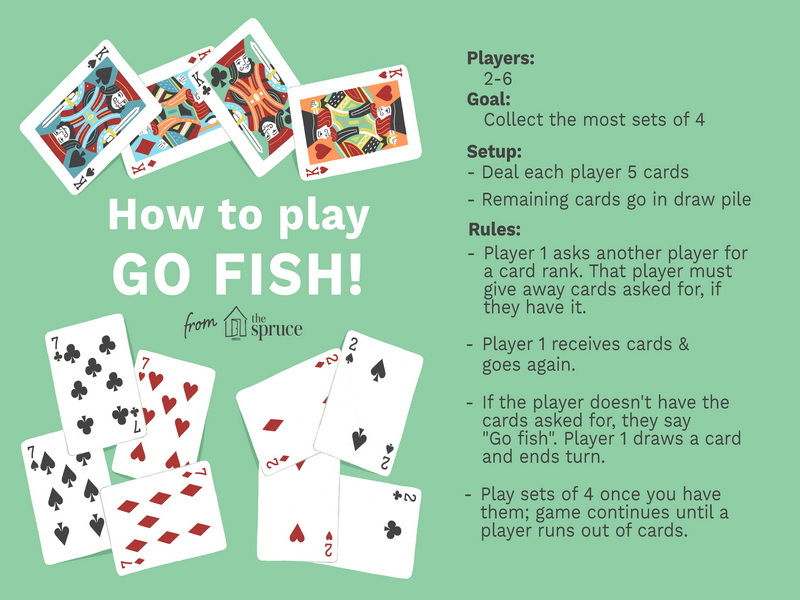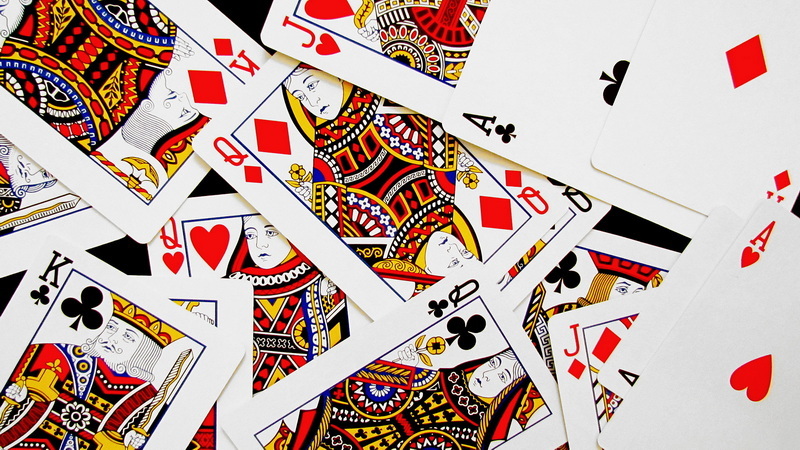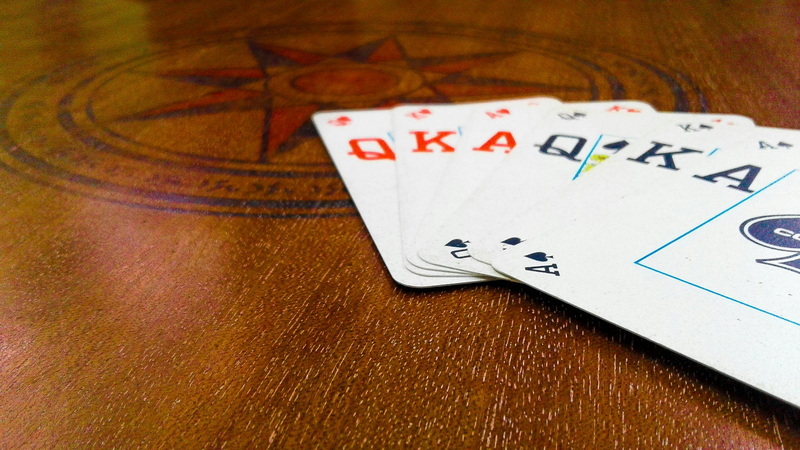Content Menu
● Introduction
● The Basics of Fish
>> Objective
>> Setup
● Gameplay
>> Turn Structure
>> Forming Books
>> Continuing Play
>> Ending the Game
● Advanced Strategies
>> Memory and Observation
>> Selective Questioning
>> Misdirection
>> Timing Your Books
● Variations of Fish
>> Pairs
>> Happy Families
>> Authors
>> Crazy Eights Go Fish
● Etiquette and Fair Play
>> Honesty
>> Clear Communication
>> Good Sportsmanship
● Teaching Fish to New Players
● Conclusion
● Frequently Asked Questions
>> 1. What happens if a player runs out of cards during the game?
>> 2. Can you ask for a card rank that you don't have in your hand?
>> 3. Is it allowed to look at the cards in the pool or count how many are left?
>> 4. What's the best strategy for winning at Fish?
>> 5. Can Fish be played with more than six players?
● Citations:
Introduction
Fish, also known as Go Fish, is a classic card that has entertained players of all ages for generations. This simple yet engaging game combines elements of memory, strategy, and luck, making it an excellent choice for family game nights or casual gatherings with friends. In this comprehensive guide, we'll explore the rules, strategies, and variations of the Fish card game, providing you with everything you need to know to become a master angler in this delightful pastime.

The Basics of Fish
Objective
The primary goal in Fish is to collect the most "books" or sets of four cards of the same rank. Players aim to gather these sets through strategic questioning and clever deduction, all while managing their hand and keeping track of their opponents' actions.
Setup
To begin a game of Fish, you'll need:
- A standard 52-card deck (without jokers)
- Two to six players (though the game can accommodate more with slight modifications)
The dealer shuffles the deck thoroughly and deals cards to each player:
- For 2-3 players: Deal 7 cards to each player
- For 4-5 players: Deal 5 cards to each player
The remaining cards are placed face-down in the center of the playing area, forming the "ocean" or "pool" from which players will "fish" throughout the game.
Gameplay
Turn Structure
1. The player to the left of the dealer starts the game.
2. On your turn, ask any other player for a specific rank of card that you already have in your hand. For example, "Do you have any sevens?"
3. If the asked player has the requested card(s), they must hand over all cards of that rank in their possession.
4. If you receive the card(s) you asked for, you get another turn.
5. If the asked player doesn't have any cards of the requested rank, they say "Go fish!" You then draw one card from the pool.
6. If you draw the card you asked for, show it to the other players and take another turn. Otherwise, your turn ends.
Forming Books
When a player collects all four cards of a particular rank, they have formed a "book." The player immediately places this book face-up in front of them and takes another turn.
Continuing Play
The game continues with players taking turns, asking for cards, and drawing from the pool when necessary. As the game progresses, players must pay close attention to which cards have been requested and by whom, using this information to make strategic decisions about which cards to ask for and from which players.
Ending the Game
The game ends when all thirteen books have been collected or when the pool is empty and no more books can be formed. Players then count their books, and the player with the most books is declared the winner.

Advanced Strategies
Memory and Observation
One of the key skills in Fish is maintaining a sharp memory. Keep track of which cards other players have asked for and who has drawn from the pool. This information can help you make more informed decisions about which cards to request and from whom.
Selective Questioning
Be strategic in your card requests. If you notice a player has been asking for high cards, it might be wise to ask them for lower cards, as they're less likely to have those in their hand. Similarly, if you know a player recently drew from the pool, they might be a good target for your next request.
Misdirection
Sometimes, it can be beneficial to ask for cards you don't actually need. This can throw off opponents who are trying to keep track of your hand and may lead them to make poor decisions based on false information.
Timing Your Books
While it's generally advantageous to form books as quickly as possible, there may be strategic reasons to delay revealing a completed book. For example, if you have three of a kind, you might want to wait before collecting the fourth card to prevent opponents from realizing you no longer have that rank in your hand.
Variations of Fish
Pairs
In this simplified version, players aim to collect pairs instead of four-of-a-kind. This variant is excellent for younger players or for quicker games.
Happy Families
Similar to the standard game, but played with special card sets featuring family groups instead of standard playing cards. Players ask for specific family members rather than ranks.
Authors
Played with a specialized deck featuring famous authors and their works. Players collect sets of four cards representing an author's books.
Crazy Eights Go Fish
This variant combines elements of Crazy Eights with Go Fish, adding wild cards and special actions to the mix for a more complex and unpredictable game.
Etiquette and Fair Play
Honesty
The integrity of the game relies on players being honest about the cards in their hand. Always give up requested cards if you have them.
Clear Communication
When asking for cards, speak clearly and ensure all players can hear your request. This prevents confusion and keeps the game running smoothly.
Good Sportsmanship
Remember that Fish is meant to be a fun, social game. Celebrate your victories graciously and accept defeats with good humor.
Teaching Fish to New Players
Fish is an excellent game for introducing children to card games. When teaching new players:
1. Start with a practice round to familiarize players with the turn structure and card requests.
2. Emphasize the importance of paying attention to other players' turns.
3. Encourage questions and provide gentle reminders about rules as needed.
4. Consider playing with open hands for the first few rounds to help new players understand the strategy.
Conclusion
Fish is a timeless card game that offers a perfect blend of simplicity and strategy. Its easy-to-learn rules make it accessible to players of all ages, while the elements of memory and deduction provide depth for more experienced players. Whether you're looking for a fun family activity or a casual game with friends, Fish provides hours of entertainment and the opportunity to hone your card-playing skills.
As you become more familiar with the game, you'll develop your own strategies and perhaps even create your own house rules or variations. The versatility of Fish ensures that it remains fresh and engaging, no matter how many times you play. So gather your friends and family, shuffle the deck, and dive into the delightful world of Fish – where the catch of the day is always fun!

Frequently Asked Questions
1. What happens if a player runs out of cards during the game?
If a player runs out of cards during the game and there are still cards in the pool, they should draw five new cards (or as many as possible if fewer than five remain). If there are no cards left in the pool, the player is out of the game and must wait for the others to finish.
2. Can you ask for a card rank that you don't have in your hand?
No, you must have at least one card of the rank you're asking for in your hand. This rule ensures that players can't simply guess at cards without any basis.
3. Is it allowed to look at the cards in the pool or count how many are left?
Generally, players should not look at or count the cards in the pool. The pool should remain face-down, and players should draw from the top when instructed to "Go fish."
4. What's the best strategy for winning at Fish?
While there's no guaranteed winning strategy, paying close attention to other players' requests, managing your hand effectively, and making strategic asks can improve your chances of success. Remember that memory and observation are key skills in Fish.
5. Can Fish be played with more than six players?
Yes, Fish can be adapted for larger groups. For games with more than six players, you might consider using two decks shuffled together and dealing fewer cards to each player at the start. This ensures there are enough cards for everyone to play a full game.
Citations:
[1] https://www.brynmawr.edu/news/rules-fish
[2] https://www.usatoday.com/story/graphics/2023/02/26/how-to-play-go-fish/10798520002/
[3] https://www.pokernews.com/card-games/go-fish/go-fish-strategy-tips.htm
[4] https://bicyclecards.com/how-to-play/go-fish
[5] https://www.mplgames.com/blog/go-fish-card-game/
[6] https://images.ctfassets.net/sm166qdr1jca/2B0MXRrvv3ToeRH38QbhKg/5d52594452841f338feba538e8ab5c1f/Website_Red_Riderback.jpg?sa=X&ved=2ahUKEwixjbCB7dOKAxVEJTQIHbkbAZYQ_B16BAgGEAI
[7] https://www.reddit.com/r/boardgames/comments/tcnwl0/how_do_you_play_go_fish/
[8] https://thirdwest.scripts.mit.edu/~thirdwest/wiki/index.php?title=Fish
[9] https://www.mplgames.com/blog/go-fish-rules/
[10] https://www.youtube.com/watch?v=hRpXLSMdve0































